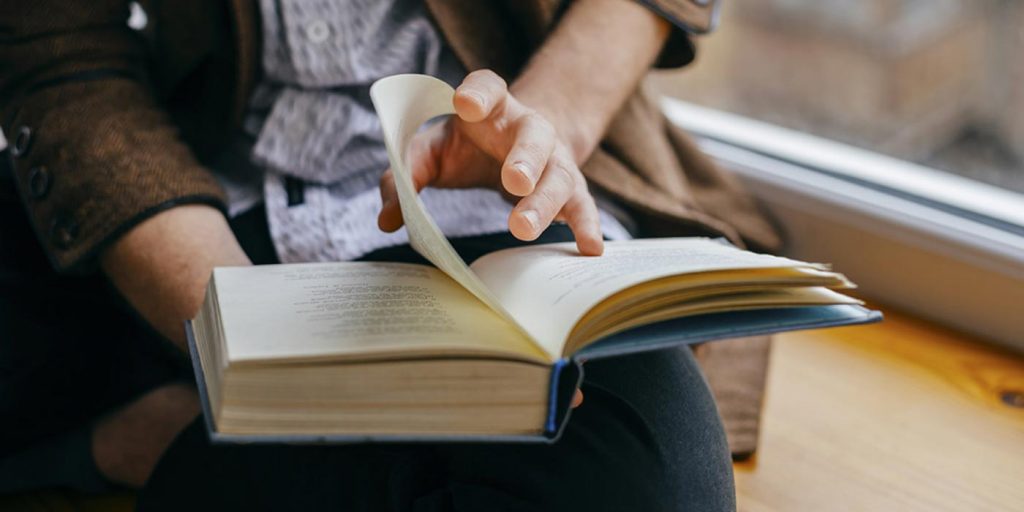In most schools, a couple of students always did others’ homework for some fee. Depending on the age, the price was either school lunches or real money. You must have known some of them, or, who knows, maybe you have been one of those young entrepreneurs? Since such a “business”…
How to Remember What You Read: 10 Best Techniques
The era of high technology has presented the world with the discovery of many new opportunities, including the development of a culture of writing and the emergence of several types of author’s text for posting on the appropriate platforms. Not least among them are books and articles.
However, along with the various conveniences for acquaintance with scientific or artistic materials, several difficulties also arise. It is a common phenomenon when a person cannot remember what he has learned during the reading.
First of all, it is necessary to understand that it is normal and can be solved through regular work on memory and assimilation of information. What is more, the latter will be useful for developing a large number of other skills, including doing research and improving a vocabulary.
Secondly, you can resort to many exercises or make some adjustments to the process of reading a particular text. So let’s take a look at several tips on how to remember what you read.
Write Down Questions Before You Read
Many learners ponder over the question, “Why can’t I remember what I read?” This means that they don’t engage with reading on a serious note. It often happens that your thoughts are wandering elsewhere while you are only pretending to study the assigned reading closely.
So, if you’re wondering how to remember what you read, a list of guiding questions can do you a good service. By making this list before the start of the reading activity, you will make a plan for finding specific bits of information and will have a higher chance of sticking with it. Stop and revise your questions after every page or paragraph you read; ask yourself whether you’ve found an answer in the studied material. If yes, note it down; if not, move on with reading.
As a result of engaging in such a carefully planned reading activity, you’re sure to attain a greater focus on the process and the content you consume. This way, you won’t face challenges with how to remember what you read.
Create Notes
Recalling what you’ve read gets way easier with note-taking. You may either write down your observations and main ideas manually or use one of the numerous homework apps with a note-taking feature. Whatever variant you choose, notes will become your vital guideline in the process of making sense of the reading material. Besides, they represent a shortened version of the vast amount of reading you’ve already covered, and they can stimulate your quicker and easier recall of the reading’s core elements.
What’s more, you can make the note-taking technique even more effective if you do it in several rounds. How to memorize what you read way better? To maximize the output of your reading efforts, you may note some ideas that strike you during the reading process and then expand your notes after reading.
Paint a Picture (The Fun Part)
Are you a visual person? Then, you have a workable shortcut on how to memorize what you read. It’s very useful to visualize what you have read and focus on those images as a memorization aid. If you studied a fictional piece, it makes sense to paint a mental picture of what the main characters look like. You may also complement the picture with images of the setting, weather, and other elements that will aid recall some time later.
Reflect and Express It Out
Reflection is also a part of the active reading process that offers substantial aid in remembering everything you read. It’s not enough to read a text and put it aside, hoping for the better. You have a tiny chance of recalling the information that you didn’t bother to process at a deeper level. A more effective solution is to give yourself time to reflect on the reading material; this way, you will relate it to your personal experience, think over its practical implications, and analyze it in more depth. The final stage is to express the reflection either in a verbal or in a written form to solidify its comprehension and fix the material in your memories.
Spaced Out Recall
Spaced learning is another answer to how to read and remember what you read perfectly well. This technique presupposes the revision of information over some time, with periods between revisions getting longer. This way, you may revise the reading material several hours before the first reading and return to it a couple of days later. If you do that, rereading the text in a month or so while preparing for the exams will be way easier, as the information will already be stored in your long-term memory. Thus, it will be much easier to retrieve.
Train Your Brain with Impression, Association, and Repetition
Another best way to remember what you read is to apply the “impression, association, repetition” memorization technique. Let’s cover this procedure in more detail to let you master it.
- Impression. Once you’ve finished reading the text, take some time to form a complete impression of it. What emotions did it arouse in you? What was the author’s main message, in your opinion? What conclusions can you make out of it?
- Association. The next stage presupposes referring the reading material to other concepts, theories, processes, or phenomena. How does it relate to your existing knowledge base, and where does it fit? How can this knowledge be applied to resolving various practical situations? What life scenarios can it inform?
- Repetition. The final stage on how to remember what you read is to repeat the studied material. It’s up to you how to do that; you may either reread the text line by line or go through it to repeat the core ideas quickly. You may also retell the content by heart or read it aloud to reinforce your memorization with the audial effects of the text.
Think about What You’re Reading
If you’re troubled by the question, “how to remember what I read?” this tip will transform your general approach to reading. There are many options to reinforce your comprehension this way. You may either retell what you’ve read in your own words and put it down on paper or discuss the studied content with a classmate or friend. This way, you will activate your brain and think over the read content not in isolation but in relation to your broader course of studies and various real-life scenarios.
Make a Regular Time to Read
You won’t be concerned about how to remember what you read if you turn reading into a healthy, enjoyable habit. Make a schedule for reading the assigned materials; you may also include some books or articles for pleasure if you have some free space for them. It also makes sense to announce that plan to your classmates or friends to instill a sense of accountability and avoid giving up.
Summarize the Chapter, Then Read It Again!
Still wondering, “how to remember what I read?”? Summaries can do wonders, no matter how self-obvious this technique seems. We recommend writing down what you’ve captured from the content right after finishing the reading activity. You may go one step further by rereading the content and comparing it to your summary. By adding some details you’ve missed during the first reading round, you will create a much fuller picture of the reading material in your memory.
Teach Someone Else
People often miss important information from the reading material because they get distracted and don’t focus on their task at hand when performing it alone. So, how to better remember what you read? The answer is to find a study buddy or a person you may help.
If you see that one of your peers is struggling with reading and can’t cope with the assigned workload, thus being forced to refer to “do my homework” services, you may assist them in mastering effective reading. What’s more, you will kill two birds with one stone, as teaching others is a powerful technique for pumping your own skills. This way, you will resolve the issue of how to remember what you read, as you will be doing it together with a peer. Thus, your level of understanding and memorization will rise manifold.


